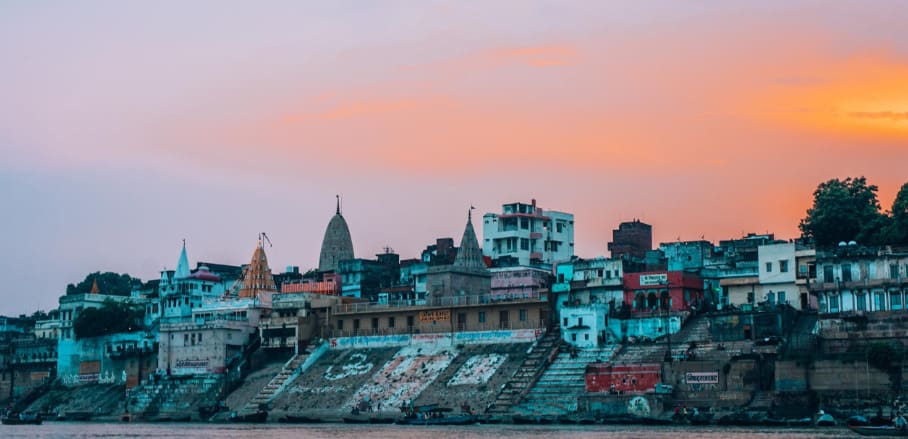Planning in the Shadow of Colonialism: India’s Balancing Act
Explore how colonial legacies perpetuate inequalities in access to resources like housing and food in contemporary Indian cities. Join Utkarsh Sharma in unravelling this narrative and seeking paths to decolonization.
It’s been 76 years since India gained its independence, yet colonial urban planning has left a legacy of challenges in Indian cities. The British colonial government introduced several planning principles based on their own experiences in European and American cities. In the post-independence era, India’s first prime minister Jawaharlal Nehru envisioned a blend of Western and Indian ideas. He aspired India to be a modern nation, but he also wanted it to be a nation that was rooted in its own traditions.
Democracy, Decentralisation, and Urban Planning Challenges in Indian Cities
Has India achieved its democratic desires since 1947? The decentralisation of powers between the Union Government, State Government, and the Urban Local Bodies (ULBs) has been a critical aspect of governance. The state government delegated various responsibilities to the ULBs including the provision of basic infrastructure and services in urban areas across India. Has the promise of raising living standards by implementing statutory planning been kept? This article delves into the potential for Indian urban planning to be more participatory, equitable, and liberal. Can citizens actively participate in city planning? Is the planning structure democratic enough for citizens?
In the late 19th century, Indian cities faced urban planning challenges including the need to widen roads and eliminate unsanitary structures in the pursuit of fostering public health and sanitation. Moving into the early 20th century, British India introduced Town Planning Acts and established Improvement Trusts, designed to combat the scourge of urban squalor and overcrowding. Notably, in Bombay, the Bombay Improvement Trust was established in 1898 to transform the city into a modern, well-planned metropolis. However, these efforts often led to the displacement of low-income communities and the loss of their livelihoods.
Unmasking the Legacy: Colonial Urban Planning and Modern Challenges
The issues Indian cities are still facing today are multifaceted, ranging from segregation and order to inequity and inadequate infrastructure. Many of the challenges that are prevalent in Indian cities today are a direct result of colonial urban planning. For example, the British colonial government’s emphasis on order and monumentality has not only led to the loss of historical and cultural sites, notably observed in Shahjahanabad and the Master Plan of Delhi 1962 but has also led to the demolition of Indian settlements.
Postcolonial India grapples with persistent inequity, which has resulted in the creation of segregated urban spaces, perpetuating social and economic inequalities. This segregation is a defining feature of Indian cities and poses massive obstacles to addressing critical issues like poverty, crime, and environmental degradation. Delhi, for instance, became a melting pot for migrants across the country, straining the city’s housing and essential infrastructure, and leading to the growth of informal settlements.

The Indian Gate in New Dehli was designed by british achitect Edwin Lutyens. © pexels/ Saurabh Kumar
The deliberate division of cities into planned and unplanned areas reflects a trend of prioritising profit over inclusive development, further marginalising vulnerable communities. For example, in Gurugram, India, the development of new townships has starkly separated planned, affluent neighbourhoods within gated communities from unplanned, underprivileged settlements outside their boundaries. This segregation reflects socio-economic and political planning principles ingrained in urban planning laws and policies.
Another pressing issue is the glaring lack of infrastructure stemming from colonial urban planning that did not prioritise infrastructure. This deficiency has engendered modern-day challenges like traffic congestion, pollution, and flooding. The postcolonial “renaissance” aimed to create meticulously planned greenfield towns like Bhubaneshwar, Chandigarh, Gandhinagar, and Bokaro to attract foreign investments while the unplanned areas were left to bear the brunt of inadequate infrastructure and limited resources, perpetuating marginalisation.
In Mumbai, policymakers aimed to enhance access to basic services and address slums and informal settlements with the affordable housing program. However, Mumbai’s implementation has led to the displacement of slum dwellers, further exacerbating segregation, and exclusion. Community participation in urban planning faces resistance from powerful interest groups, perpetuating the underrepresentation of marginalised communities and deepening inequalities in decision-making.
Decolonising the City: Toward a More Equitable and Inclusive Future
A variety of contemporary solutions have been proposed to tackle the problems caused by colonial urban planning. These solutions include inclusive planning, equitable development, and the pursuit of sustainable development. One promising example is Magarpatta, a self-contained township with IT and SEZ development as its economic base, with all space created and leased by a private corporation. This innovative model has attracted IT professionals and businesses, seamlessly integrating residential and commercial spaces with state-of-the-art infrastructure.
Another example is the successful implementation of inclusive planning by Indore’s municipal corporation. This approach involves local communities in shaping neighbourhood plans, which has led to improvements in access to services, infrastructure development, and community engagement, showcasing the potential of equitable planning for sustainable cities.
In conclusion, the future of Indian cities depends on effective policymaking and planning, that addresses power dynamics and the equitable distribution of resources. Prioritising inclusivity and actively involving communities in decision-making processes is the path towards fostering urban environments that are both more equitable and sustainable.
- Planning in the Shadow of Colonialism: India’s Balancing Act - 5. December 2023
